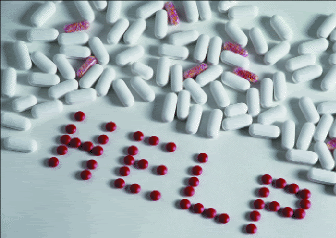Prozac, used by 40m people, does not work say scientists
Prozac, the bestselling antidepressant taken by 40 million people worldwide, does not work and nor do similar drugs in the same class, according to a major review released today.
The study examined all available data on the drugs, including results from clinical trials that the manufacturers chose not to publish at the time. The trials compared the effect on patients taking the drugs with those given a placebo or sugar pill.
When all the data was pulled together, it appeared that patients had improved - but those on placebo improved just as much as those on the drugs.
The only exception is in the most severely depressed patients, according to the authors - Prof Irving Kirsch from the department of psychology at Hull University and colleagues in the US and Canada. But that is probably because the placebo stopped working so well, they say, rather than the drugs having worked better.
"Given these results, there seems little reason to prescribe antidepressant medication to any but the most severely depressed patients, unless alternative treatments have failed," says Kirsch. "This study raises serious issues that need to be addressed surrounding drug licensing and how drug trial data is reported."
The paper, published today in the journal PLoS (Public Library of Science) Medicine, is likely to have a significant impact on the prescribing of the drugs. The National Institute for Health and Clinical Excellence (Nice) already recommends that counselling should be tried before doctors prescribe antidepressants. Kirsch, who was one of the consultants for the guidelines, says the new analysis "would suggest that the prescription of antidepressant medications might be restricted even more".
The review breaks new ground because Kirsch and his colleagues have obtained for the first time what they believe is a full set of trial data for four antidepressants.
They requested the full data under freedom of information rules from the Food and Drug Administration, which licenses medicines in the US and requires all data when it makes a decision.
The pattern they saw from the trial results of fluoxetine (Prozac), paroxetine (Seroxat), venlafaxine (Effexor) and nefazodone (Serzone) was consistent. "Using complete data sets (including unpublished data) and a substantially larger data set of this type than has been previously reported, we find the overall effect of new-generation antidepressant medication is below recommended criteria for clinical significance," they write.
Two more frequently prescribed antidepressants were omitted from the study because scientists were unable to obtain all the data.
Concerns have been raised in recent years about the side-effects of this class of antidepressant. Evidence that they could prompt some young people to consider suicide led to a warning to doctors not to prescribe them for the under-18s - with the exception of Prozac, which was considered more effective than the rest.
In adults, however, the depression-beating benefits were thought to outweigh the risks. Since its launch in the US in 1988, some 40 million people have taken Prozac, earning tens of billions of dollars for the manufacturer, Eli Lilly. Although the patent lapsed in 2001, fluoxetine continues to make the company money - it is now the active ingredient in Sarafem, a pill sold by Lilly for premenstrual syndrome.
Eli Lilly was defiant last night. "Extensive scientific and medical experience has demonstrated that fluoxetine is an effective antidepressant," it said in a statement. "Since its discovery in 1972, fluoxetine has become one of the world's most-studied medicines. Lilly is proud of the difference fluoxetine has made to millions of people living with depression."
A spokesman for GlaxoSmithKline, which makes Seroxat, said the authors had failed to acknowledge the "very positive" benefits of the treatment and their conclusions were "at odds with what has been seen in actual clinical practice".
He added: "This analysis has only examined a small subset of the total data available while regulatory bodies around the world have conducted extensive reviews and evaluations of all the data available, and this one study should not be used to cause unnecessary alarm and concern for patients."


 . He knew they would only last a short while but kept hoping for one to actually work, none did. He is much better now but that was just trial and error learning how to calm himself, still blows up from time to time and kicks someones ass for no reason
. He knew they would only last a short while but kept hoping for one to actually work, none did. He is much better now but that was just trial and error learning how to calm himself, still blows up from time to time and kicks someones ass for no reason 